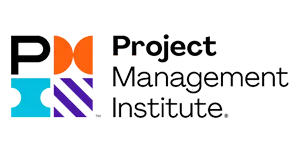Our Master Black Belt training lasts two weeks, going beyond traditional Black Belt skills to incorporate new tools. Training prepares MBBs through intensive study DMAIC letters M, A, I, and C. Master Black Belts encourage and support improvement strategies at all levels of Six Sigma hierarchy, in all areas, of an organization. They also deal with suppliers and customers, in addition to project teams and executives. But how do you design a curriculum to meet these goals?
Master Black Belt Curriculum
We believe Master Black Belt training should build upon already existing Black Belt training, expanding on the concepts delivered in their previous education. Master Black Belts will typically require two or more years of Black Belt experience (plus training), and five or more years of business experience. MBB’s previous work and expertise should inform their MBB training, building on their existing skills and knowledge base. Some areas of responsibility for Master Black Belts are as follows:
- Leadership and people skills. MBBs will typically manage and coach Black Belts, Green Belts, Yellow Belts, and entire Six Sigma teams, while on the project floor. Furthermore, leadership and people skills are essential to building strong teams and professional relationships. Additionally, MBBs teach team members to deploy improvement tools and solutions, as well as identify areas that require attention.
- Developing and implementing organizational metrics. Classical Six Sigma metrics include timeliness, accuracy, efficiency, workability of business and cost, as well as other measures of quality. Moreover, Master Black Belts should know how to select and implement appropriate metrics.
- Creating, maintaining, and reviewing Six Sigma curriculums in classroom-based training. As Master Black Belts, you will be required to assess and deliver Six Sigma training programs, providing coaching and support for other Belts.
- Networking is an essential skill for Master Black Belts to master, as it can open many doors for you when it comes to finding employment. Master Black Belts often work as consultants, an independent role that requires seeking out opportunities. Networking with other MBBs and Six Sigma practitioners will enable you to get the lay of the land. Likewise, MBB training should teach critical networking skills to build your network from the ground up. Maintaining strong professional relationships is important as an MBB, and training should support this.
Essential Master Black Belt Skills
- DMAIC. MBBs should be able to use and teach DMAIC in the classroom and on projects.
- Non-Parametric Analysis. When there are fewer assumptions to deal with, NPA enables MBBs to get a handle on their data.
- Multi-Vari and Practical Experiments. MBBs will be expected to address multiple parameters and sources of process variation at any one time. Similarly, experience with practical experimentation is just as important.
- Handling Attribute Responses and Optimization Experiments. Our MBB curriculum covers how to use Minitab to handle attribute responses and create optimization experiments.
- Advanced Regression and SPC Methods. Regression alone is a difficult tool to use, and SPC can be just as tricky, but advanced methods are often required. Our MBB curriculum teaches several different ARMs and ASPCs.
- Handling Multi-Response Experiments. We believe in going above and beyond Freeman-Tukey when it comes to MREs.
- Distributional Analysis. We teach our MBBs to understand the far-reaching effects of policy programs and funding decisions.
- SIPOC Diagrams. SIPOC diagrams identify key factors of process improvement projects before commencement.
- Identifying CTQ (critical-to-quality) factors. Quality MBB training teaches how to draw CTQ trees. This enables MBBs to measure and display improvement efforts and align them with customer demands.
- Statistical software training. Reliable, statistical data underpins all Six Sigma work. Our trainers teach MBBs how to use statistical software like Statgraphics, SigmaXL, and SPC XL.
- Poka-Yoke. Mistake-proofing improvement measures will ensure the same problems don’t arise in the future. Our course teaches MBBs to recognize opportunities and devise solutions to reoccurring issues.
Contact us if you have additional questions.









No responses / comments so far.